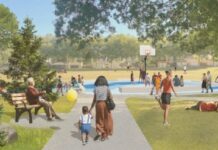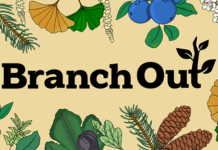WITH denning season in full swing, the Vancouver Board of Parks and Recreation is reminding the public how to respect and interact with coyotes that live across the city’s parks and greenspaces to support long-term, peaceful coexistence.
In Vancouver, coyotes begin breeding in January, with litters of pups born in spring. During this time, coyotes are more active as they establish and protect their dens, and seek additional food for their young. Typically only seen at dusk and dawn, they will often be spotted in the daytime and will behave more boldly to ensure their families are kept safe. This could look like ‘escorting’ humans and pets away from their dens; and standing their ground or acting more defensively if they perceive a threat.
With sightings of coyotes more likely at this time of year, the public are reminded that coexisting and protecting Vancouver’s wildlife relies on all of us doing our part to ensure both animals and people can enjoy our greenspaces without negatively interacting with one another.
Tips for peaceful coexistence
* Never intentionally leave food on the ground, or offer food to any wildlife. Food attractants are the main causes of coyotes becoming habituated to humans and hugely increase the chances of conflict.
* Respect trail closures to ensure denning coyote families are not disturbed.
* Keep pets on leash at all times, except in designated off-leash dog areas.
* Dispose of waste in bins provided.
* Give wildlife space. If you see a coyote, slowly back away. If the animal approaches, act aggressively by standing tall and yelling. Most importantly, do not turn your back or run. Coyotes have a natural instinct to chase after prey and will pursue.
What the Vancouver Board of Parks and Recreation is doing to support coexistence
* Working with City Sanitation to improve waste management by retrofitting and replacing garbage bins to prevent access by coyotes and their prey.
* Monitoring for any feeding of wildlife and using the Parks Control By-law that strictly prohibits this in any Vancouver parks. Anyone caught feeding wildlife, including coyotes, birds, rodents, squirrels and raccoons, is subject to a fine of $500.
* Adopting proactive and strategic aversion conditioning to reinforce healthy boundaries with wildlife and avoid developing patterns of aggressive behaviour in new coyote populations.
* Offering education and awareness to the public, including updates on related activities or closures.
* Supporting the Stanley Park Ecology Society’s Coexisting with Coyotes program, which reduces conflict between people, pets, and coyotes in Stanley Park and around the city.
* Working closely with wildlife experts and the Province on long-term research and monitoring of coyote populations and behaviours within Vancouver parks.
Report coyote sightings and behaviour
The Stanley Park Ecology Society (SPES) tracks coyote behaviour and monitors populations across the city. Coyotes exhibiting normal behaviour, e.g. casually moving through their habitat; yipping/barking; leaving the area when humans or pets are spotted; or escorting a pet or person out of their territory by following at a distance, can be reported to SPES online or by calling 604-257-6908, ext. 104.
Concerning incidents such as coyotes behaving aggressively; being fed by humans; a pet or human coming into physical contact with a coyote; or an injured/dead/distressed coyote should be reported immediately to the Provincial Report All Poachers and Polluters (RAPP) line on 1-877-952-7277.
For more information on coyote behaviour and coexistence, visit:
https://vancouver.ca/parks-













